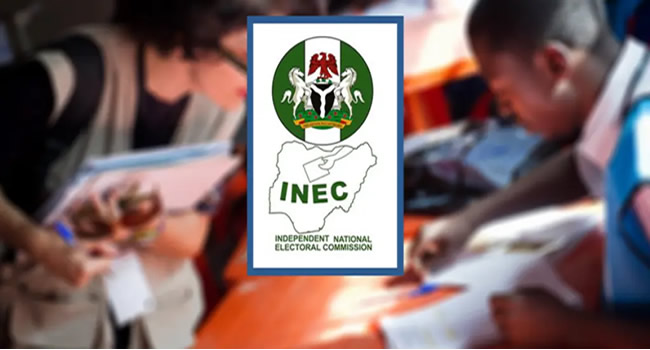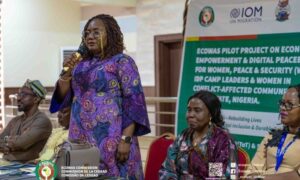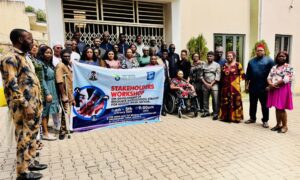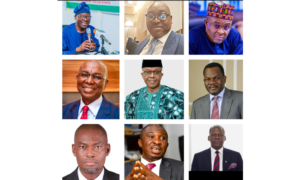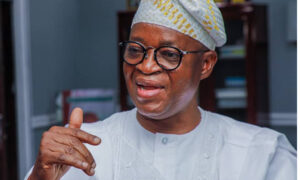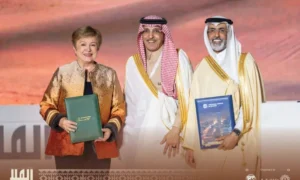By Imelda Osayande
The clamour for the conduct of all elections same day re-echoed recently at the zonal Constitution review sittings organised by the National Assembly for the amendment of the 1999 Constitution.
Those in support of the proposal hold that credible election is necessary for the sustenance of constitutional democracy.
The proponents regret that the country is replete with disputed elections, and in most cases, after long litigation, elected public officers will emerge through judicial pronouncements.
Worthy of recall, late Dr Ogbonnaya Onu, then Minister of Science and Technology, in 2021, ahead of the 2023 General Elections, argued that it was possible to conduct all elections in one day.
He said his ministry had developed a machine to handle elections of that magnitude.
Onu said that the Federal Executive Council had been briefed on the machine in the performance assessment report he submitted.
He added that the electronic voting machine would be solar-powered.
“This voting solution will help us to have clean elections in Nigeria and will make it possible for us as a nation to conduct all our elections in one day at the same time.
“All the elections, the national, state and local governments; seven of them can be conducted the same day.’’
Onu added that the other qualities of the machine included the fact it was paperless and also designed not to store data.
“So, if somebody comes to snatch it, it is a waste of time; as soon as data comes into it, it transmits it.
“So basically, you will have a system that will be addressing many of the problems that we have today in the conduct of our elections.’’
The minister said that the ministry was in consultation with the Independent National Electoral Commission (INEC) on the machine, which had also been presented to the National Economic Council (NEC).
“We have gone to INEC on this, to set up a committee; we also took this before the National Economic Council and we are still working to further improve on the system,” he added.
Today, Onu’s submissions are still pertinent as stakeholders who contributed to the current debate expressed divergent views.
Mr Pius Oiwoh, former Nigeria Bar Association (NBA) Benin Branch Chairman, said that holding all elections same day would indeed save costs.
He, however, stressed that additional manpower and increased budgetary allocations were necessary.
Oiwoh advised that before implementing the proposal, INEC must embark on aggressive voter education.
“I sincerely believe that holding all elections on a single day is the best way to go, in order to save cost, but INEC should allocate more resources to ensure effective delivery, and overcome challenges associated with staggered elections.’’
A political analyst, Mr Edosa Okunbor, said single-day elections would make the whole exercise cumbersome and give room for easy manipulation.
Okunbor, former public relations officer of Oredo Local Government Council of Edo, said that even with the staggered elections, the electorate complained about the performance of INEC to say the least when all elections were conducted on the same day.
“We have elections now that are staggered, yet Nigerians are complaining that INEC does not release results on time.
“If it is a single-day election, what do you expect from INEC?’’ He argued that INEC did not have the resources and manpower to conduct that magnitude of elections.
Okunbor also said that in many advanced western countries, all elections were not conducted on the same day.
“You can see that the U.S. doesn’t conduct presidential election on the same day with governorship election.
“They have separate governorship election date, the same with parliamentary election in Britain, among others.
“So, for me, logistics will pose a problem.
“There will be heavy manipulation, and many of our people will be disenchanted with the process and INEC will also be overwhelmed,” he said.
An activist, Mrs Tessy Amenaghawon, said Nigeria lacked the capacity to conduct all elections in one day due to inadequate facilities, and manpower.
“It is impossible without upgrading INEC’s infrastructure,’’ she said.
Amenaghawon said there was need to strengthen the existing process rather than changing the sequence.
Mr Pascal Ogbu, a legal practitioner and public affairs analyst, said the idea of a single day election was not only feasible but desirable.
Ogbu contended that staggered elections undermined the democratic choice of the people at the grassroots level, stressing that the electorate was usually influenced by the outcome of the presidential election.
“When presidential election is held first, there is often a bandwagon effect that influences how people vote in subsequent election, these undermines the democratic choice of the people at the grassroots level.
“Conducting all elections in one day will also help reduce the overall cost of logistics, deployment of personnel and security arrangements,’’ Ogbu said.
Mr Ladipo Johnson, National Publicity Secretary of the New Nigeria Peoples Party (NNPP), said that same-day polls would be cost-effective and efficient, and also restore the people’s confidence in the electoral process.
“The costs of elections are too high, just like those of governance.
“The reasonable thing to reduce the costs; even for the political parties, it is cheaper and more efficient for them to do their elections in one day.
“If these people are going to rig, they will rig; but if you have all your elections in one day, all your candidates are able to pool resources so that the polling unit is properly manned,” he said.
Deputy National Organising Secretary of APC, Nze Chidi Duru, said holding all election same day might lead to system collapse.
“To hold all elections on the same day puts a lot of pressure on the institution that is governing elections in Nigeria.
“You are going to be holding elections for the state assemblies, House of Representatives, Senate, governorship and presidency; after those four years, INEC now sits back and literally does nothing.
“Staggered polls will keep INEC active year-round and reduce the risk of system collapse,’’ he said.
While the debate goes on, stakeholders say the Constitution review offers an opportunity to strengthen the electoral process and foster a strong system that will ensure their votes count.
They say Nigerians desire a process that will ensure that leaders are duly elected and not emerge through court judgments.


